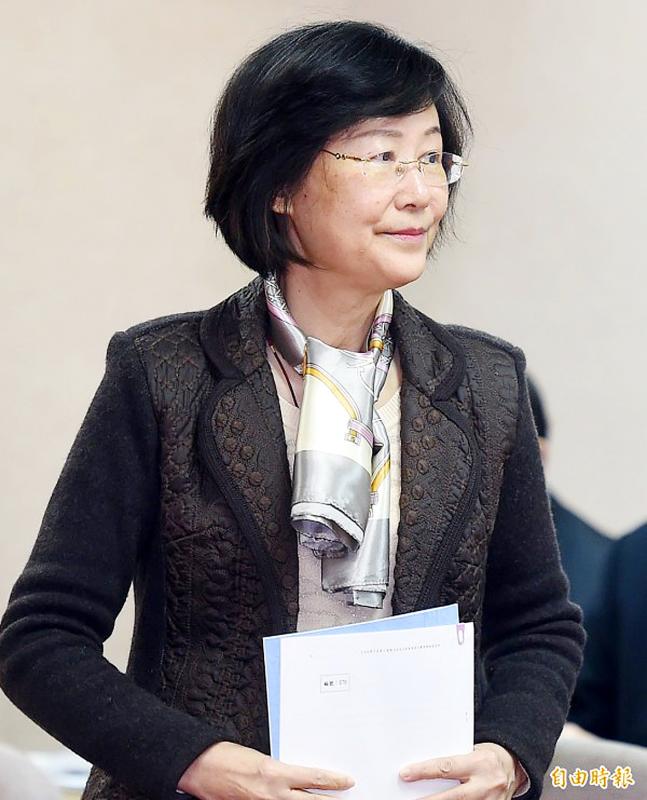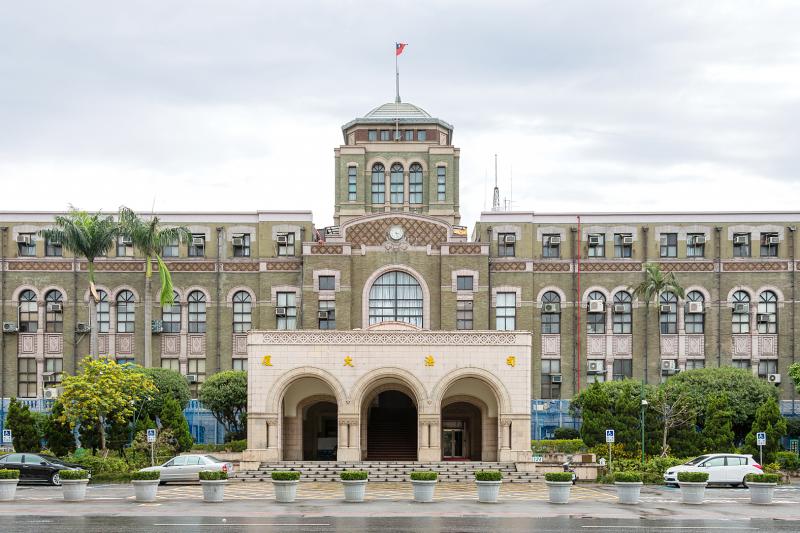Sept. 20 to Sept. 26
During Liang Chiu-jung’s (梁秋蓉) bitter three-year legal battle with her ex-husband’s family, her younger son was the only thing that kept her going. But in 1993, her husband’s family, who was caring for their older son, suddenly requested custody.
Although the 1990s, article 1089 of the Civil Code still stipulated that in the event that both parents disagreed how to exercise parental rights over a minor, the father had the right of final decision. There was also Article 1051, which by default granted custody to the father in case of a divorce.

Photo courtesy of Public Domain Pictures
After losing the first trial, Liang quit her job, left her parents’ house and went into hiding with her son. Although the judge during the second trial invoked a new clause in the Children and Youth Welfare Act (兒童及青少年福利法) and sided with Liang, the husband’s family swore to appeal.
In July 1994, Liang and fellow divorced mother Chang Pei-chun (張佩君) brought the issue before the constitutional court with the help of lawyer and future minister of justice Lo Ying-shay (羅瑩雪).
The council of grand justices issued Constitutional Interpretation No 365 on Sept. 23, 1994, ruling that article 1089 was unconstitutional and needed to be amended within two years along with other similar provisions.

Photo: Chu Pei-hsiung, Taipei Times
“The solution to this problem shall be provided for based on the principle of gender equality and the best interests of the child,” the interpretation stated.
It was the first interpretation by the grand justices to declare gender inequality unconstitutional. However, like the more recent same-sex marriage struggle, the government took its time and waited two years to make the mandated changes.
Women’s groups were not happy about the two-year deadline, and were also upset that they didn’t provide any immediate way to help Liang, Chang and other mothers in the same predicament.

Photo courtesy of Wikimedia Commons
“These laws have tormented women for 63 years, and the grand justices should not allow it to go on for another two years. We have had enough,” the Awakening Foundation (婦女新知基金會) stated in response. “This law is just the tip of the iceberg; the entire family law portion of the Civil Code needs to be overhauled.”
FAILED AMENDMENTS
Article 1089 and other related laws, enacted in 1930 when the Chinese Nationalist Party (KMT) still ruled China, were products of a different era. And despite the 1947 Republic of China (ROC) Constitution guaranteeing gender equality before the law, these dinosaur provisions continued to exist even after the women’s rights movement made headway in the 1980s.
In 1975, the government invited experts to examine how to update the Civil Code’s family law section to better reflect modern values in a changing society. The process took about 10 years, but critics found that the new version still upheld outdated patriarchal notions.
Awakening Foundation founding member and former Democratic Progressive Party legislator Yu Mei-nu (尤美女) writes in a 1999 report that the 13-person committee that made these amendments only included one woman, and the reviewing legislators also included just one woman.
One problem, Yu writes, was that many people — including women — still believed that the law should stay out of family matters, and that maintaining (superficial) family harmony was still more important than women’s rights. Family finances, for example, remained under the control of the husband because legislators worried that joint management would lead to more conflict.
“But society was changing fast in the early 1990s. The support system of a big family had collapsed, and the nuclear family was also changing. Divorce rates were skyrocketing, domestic violence was rampant and affairs were happening frequently,” Yu writes. “Coupled with issues involving single-parent households and financial management, it was evident that the amendments were inadequate.”
Along with the Warm Life Association (晚晴婦女協會) and other women’s groups, the Awakening Foundation in 1990 started proactively tackling these unequal laws, especially article 1089, which was dubbed the “father’s rights first” provisions (父權優先條款).
The women’s groups spent three years drafting a new family law bill in May 1993 and launched a spirited campaign to promote the idea across the nation and push lawmakers to action. During a petition drive in March 1994, they obtained over 10,000 signatures in a day and later marched to the constitutional court to grill the newly-appointed grand justices about their views on gender equality.
SYMBOLIC VICTORY?
In May 1994, Chang visited Lo’s office to enact a will that would leave her property to her daughter and nothing to her husband. She told Lo her story, which involved over a decade of physical and emotional abuse as well as the legal disputes. Finally, her husband decided to divorce her and claim custody of their seven-year-old daughter — whom Chang primarily raised — per Article 1089.
Like Liang, Chang went into hiding with her daughter, who was adamant that she wanted to stay with her mother. After finding out that her husband had two other children out of wedlock, she took him to court and also sought Lo’s help.
Lo had already been working with Liang, and asked if Chang wanted to join them in requesting a constitutional interpretation on Article 1089.
According to the book Grand Justices Give an Explanation (大法官, 給個說法) by the Justice Reform Foundation, Chang was initially shocked, as she had never even considered that the law might be unfair. After speaking to Lo, she quickly agreed.
Although Chang and Liang got what they wanted from the grand justices, they did not enjoy the benefits of it due to the two-year waiting period. In March 1995, female students from 11 university groups declared: “If the Civil Code isn’t amended, we will not get married,” but progress remained slow. Liang’s husband sued her for kidnapping their son, but the charges were later dropped.
Since Chang and her husband were still married, they both retained parental rights over the child — unless she could prove that her husband abused such rights. Since Chang refused to get a divorce, she lost the case. In 2002, her daughter turned 20 and declared that Chang and her relatives were her only true family, and moved her household registration from her father’s house to Chang’s.
“Although Interpretation No 365 didn’t reverse the tide and help our situation, we believe that many other unfortunate women like my mother can benefit from it and retain custody of their beloved children,” Chang’s daughter says in the Grand Justices book.
Taiwan in Time, a column about Taiwan’s history that is published every Sunday, spotlights important or interesting events around the nation that either have anniversaries this week or are tied to current events.

A vaccine to fight dementia? It turns out there may already be one — shots that prevent painful shingles also appear to protect aging brains. A new study found shingles vaccination cut older adults’ risk of developing dementia over the next seven years by 20 percent. The research, published Wednesday in the journal Nature, is part of growing understanding about how many factors influence brain health as we age — and what we can do about it. “It’s a very robust finding,” said lead researcher Pascal Geldsetzer of Stanford University. And “women seem to benefit more,” important as they’re at higher risk of

Eric Finkelstein is a world record junkie. The American’s Guinness World Records include the largest flag mosaic made from table tennis balls, the longest table tennis serve and eating at the most Michelin-starred restaurants in 24 hours in New York. Many would probably share the opinion of Finkelstein’s sister when talking about his records: “You’re a lunatic.” But that’s not stopping him from his next big feat, and this time he is teaming up with his wife, Taiwanese native Jackie Cheng (鄭佳祺): visit and purchase a

April 7 to April 13 After spending over two years with the Republic of China (ROC) Army, A-Mei (阿美) boarded a ship in April 1947 bound for Taiwan. But instead of walking on board with his comrades, his roughly 5-tonne body was lifted using a cargo net. He wasn’t the only elephant; A-Lan (阿蘭) and A-Pei (阿沛) were also on board. The trio had been through hell since they’d been captured by the Japanese Army in Myanmar to transport supplies during World War II. The pachyderms were seized by the ROC New 1st Army’s 30th Division in January 1945, serving

The People’s Republic of China (PRC) last week offered us a glimpse of the violence it plans against Taiwan, with two days of blockade drills conducted around the nation and live-fire exercises not far away in the East China Sea. The PRC said it had practiced hitting “simulated targets of key ports and energy facilities.” Taiwan confirmed on Thursday that PRC Coast Guard ships were directed by the its Eastern Theater Command, meaning that they are assumed to be military assets in a confrontation. Because of this, the number of assets available to the PRC navy is far, far bigger